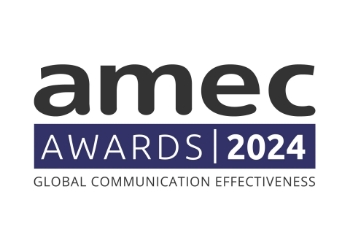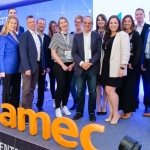2020 USC Global Communications Report
AMEC Virtual Summit 2020 session presented by Fred Cook, Director of the USC Center for Public Relations at the Annenberg School
In its recent study of ‘new activism’, the Annenberg School sought to understand how activism has changed, and how its perception might be lagging behind its new form and characteristics.
The mission of the Annenberg School is to shape the future of communication and those who lead it, and never has this been more relevant than in the current social, political, technological and environmental climate where activism is a powerful force.
The New Activism report surveyed public relations professionals (in house and agency, U.S. and worldwide) as well as activists to collect views on activism and the ‘power of purpose’.
It reported a consensus that the influence of activism has grown in the last five years – and will continue to grow in the next five years – fuelled by a decline in trust in political institutions and a perceived lack of government action.
But there the consensus seems to end, and what emerged through the survey is a disconnect between the PR industry’s idea of activism – what it is, who has most influence and what channels are most effective for delivering activist messages – and the corresponding views of the activist community itself.
While PR professionals view activism as activity driven by community leaders that is effective in raising awareness, activists are more concerned with creating long lasting change through mass mobilisation of citizens. In contemporary activism, such as the Black Lives Matter (BLM) movement, there is no figurehead – it is the product of everyday individuals being motivated to raise their voices, tell their stories and achieve societal change.
Interestingly, both PR professionals and activists recognise the influence of CEOs in creating change. The role of corporates in delivering influential messages (more so than politicians) means opportunities for brands to engage with ‘the power of purpose’.
For activists, children are more influential than social media influencers, politicians, philanthropists and religious leaders, as demonstrated in the way K-pop fans and TikTok users disrupted the Trump rally held in June.
PR professionals think that public action – protests, walk outs, writing to law makers and signing petitions – makes a person an activist. Yet activists themselves say that voting and mobilising voters is the most important characteristic. Through the lens of recent rioting activity in the U.K. and U.S., it is interesting to note that only 11% of activists say protesting creates long lasting change and, in general, there is a shift from protesting to policy.
The USC survey also revealed that social media doesn’t have the activist influence that PR professionals might think. Activists have realised that in the realm of social media they are too often preaching to likeminded audiences. To engage more broadly, activists are using bill boards, direct mail, email and even books to great effect.
For corporates and brands, this era of ‘new activism’ and its growing influence holds enormous opportunity. However, many companies are reluctant, unprepared and struggling to find their voice when faced with activist issues, particularly when they are the focus for attack. Working more closely with activists, and being prepared when called to be involved or have a response, requires a genuine commitment and stance on purposes that matter not only to the core business, but also to stakeholders and customers.
Cook rounds off his presentation by inviting communications professionals to think about who they are willing to stand beside and align with on values. Activists are equally sceptical, wanting to know that corporations are serious in driving long lasting change and not partnering for short term awareness. Yet these relationships could be the most influential partnerships that brands forge in the future, enabling them to create a shared value and rais






